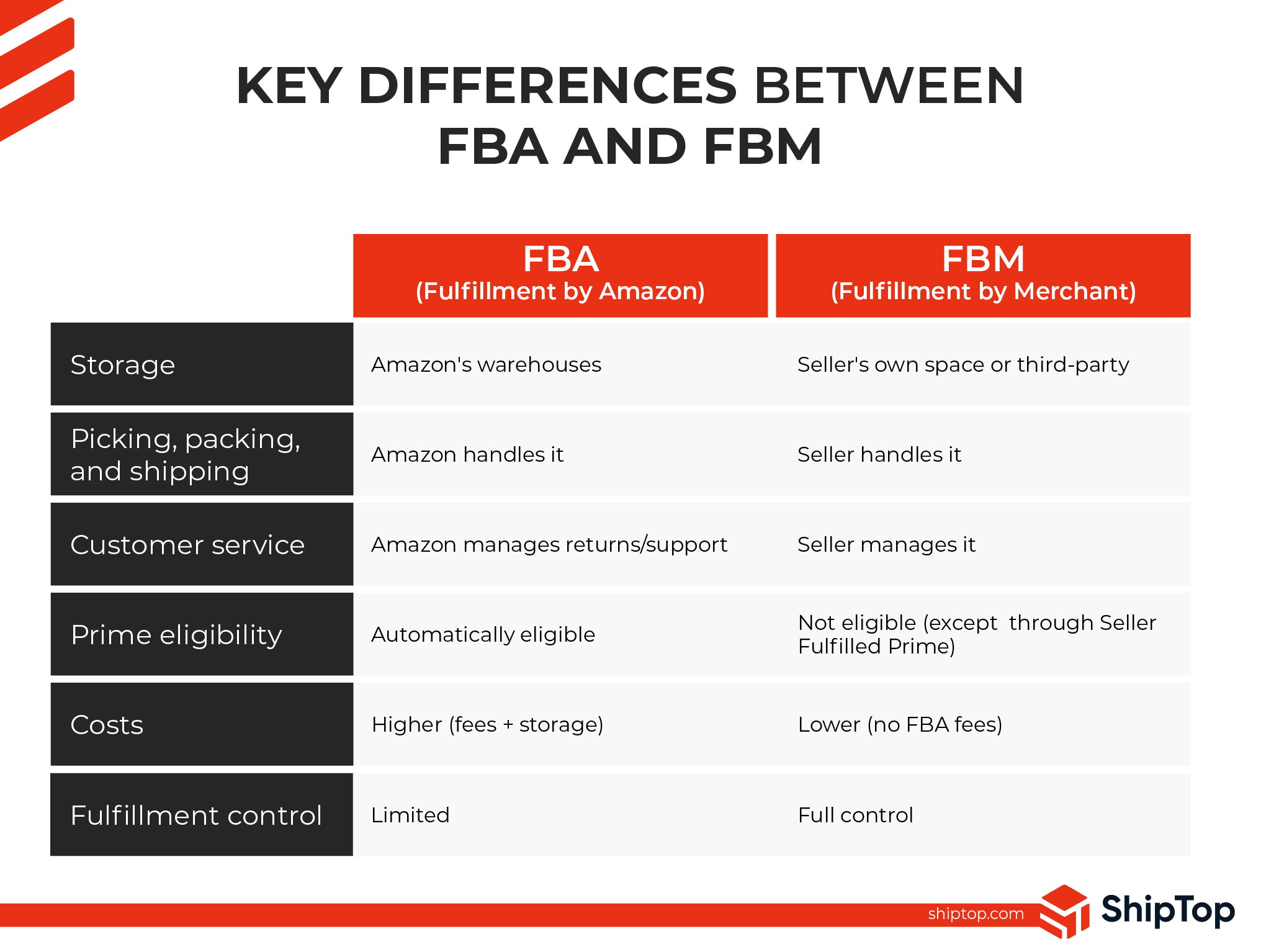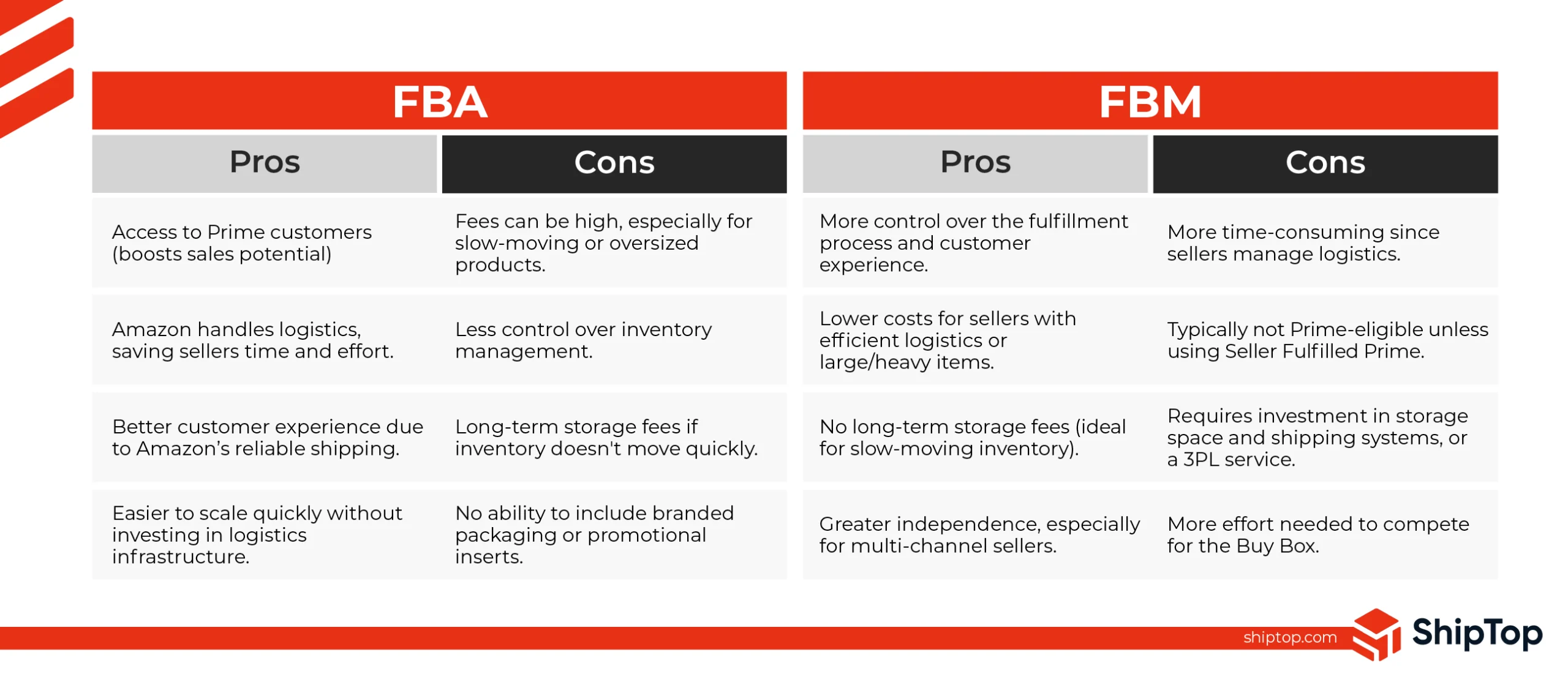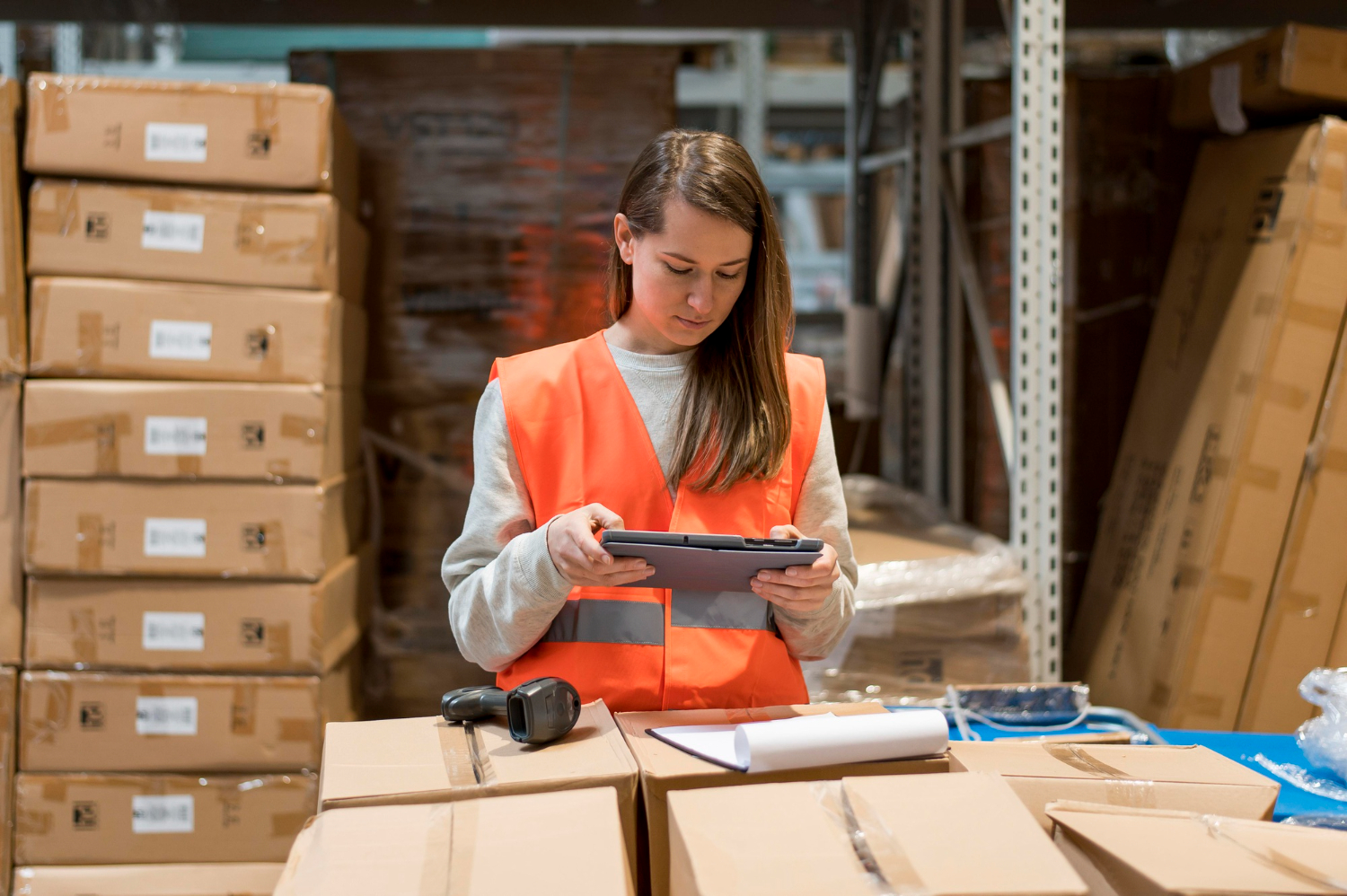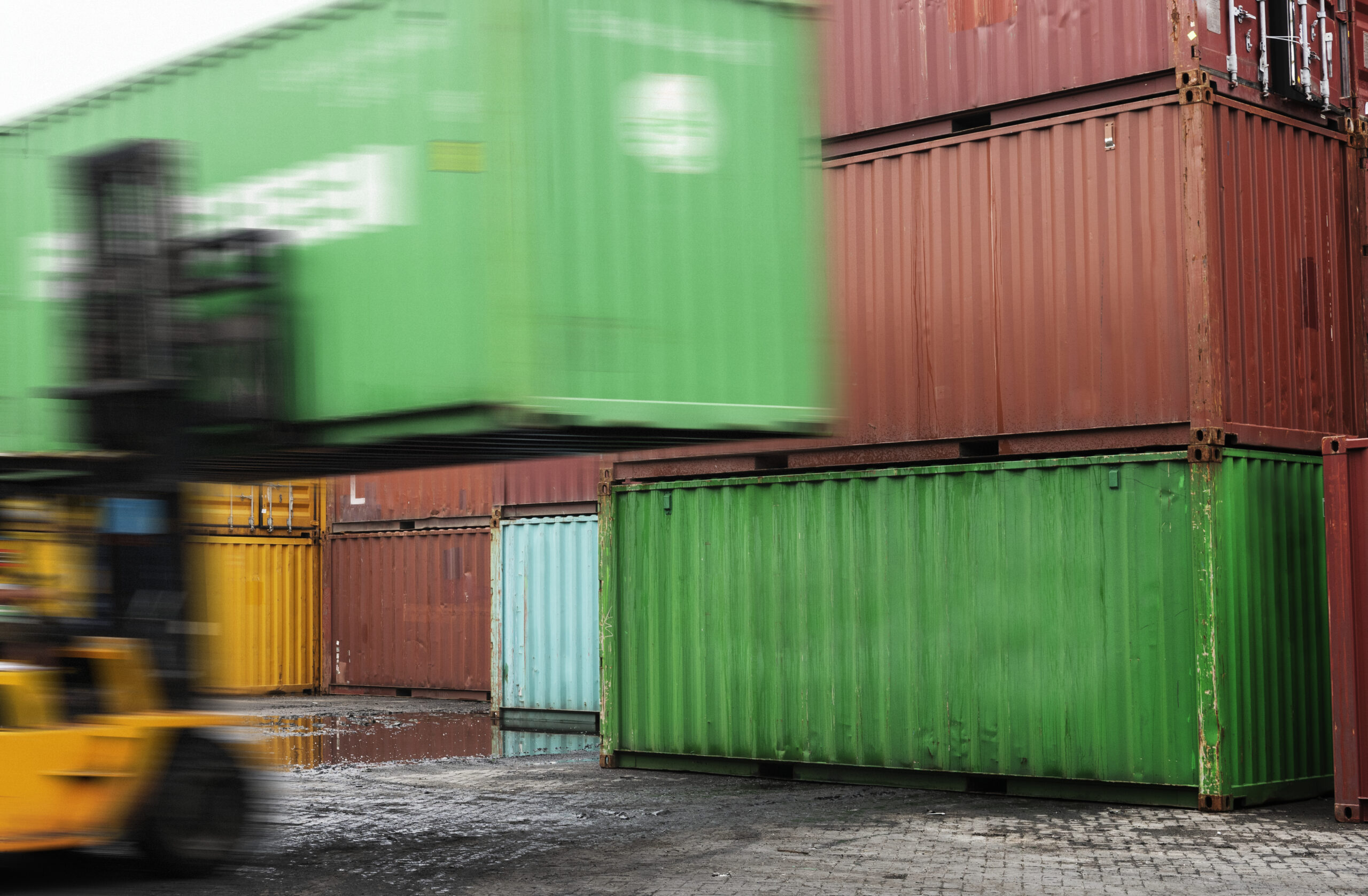In the ever-evolving world of eCommerce, Amazon remains a behemoth. With millions of products and customers worldwide, selling on the platform can be incredibly lucrative. However, to succeed in this competitive landscape, efficient Amazon order fulfillment is paramount.
As an Amazon seller, you have two main choices:
- Amazon can ship orders on your behalf through the Fulfillment by Amazon (FBA) program.
- Or you can take full responsibility for the shipping by opting for the Fulfillment by Merchant (FBM) program.
Whether you’re a budding eCommerce entrepreneur or a seasoned seller, understanding the nuances of FBA vs FBM can make all the difference in optimizing your Amazon operations.
Let’s get started!
Understanding Amazon Fulfillment
Amazon Fulfillment is the backbone of the eCommerce giant’s operation. It’s the system responsible for storing, packing, and shipping products to customers.
Essentially, Amazon Fulfillment allows sellers to leverage Amazon’s extensive distribution network and customer reach. This service takes the burden of logistics off the seller’s shoulders, allowing them to focus on growing their business.
As we teased in the intro, when it comes to Amazon Fulfillment, there are two main approaches: Fulfillment by Amazon (FBA) and Fulfilled by Merchant (FBM).

How does FBA work?
FBA (Fulfillment by Amazon) is a program where sellers store their products in Amazon’s fulfillment centers. This means the products are shipped to an Amazon warehouse (which is sometimes not owned by Amazon but rather outsourced by Amazon to a third-party logistics partner).
In this model, Amazon handles everything from warehousing and order picking to packing and shipping.
You should consider FBA when:
- You want to scale quickly with minimal logistics work: Amazon handles the heavy lifting (storage, packing, shipping, returns), which allows you to focus on product sourcing and scaling your business.
- Your products are small, lightweight, and sell quickly: FBA fees are most cost-effective for fast-moving and compact products.
- You want Prime access to increase sales: Products fulfilled through FBA are automatically eligible for Amazon Prime, significantly boosting visibility and conversions with Prime members.
- You have limited space for inventory: FBA is ideal if you lack the storage capacity or facilities to handle large amounts of stock.
- You sell internationally on Amazon marketplaces: Amazon FBA makes it easier to fulfill international orders without the hassle of managing cross-border logistics.
- You want to qualify for Amazon’s “Buy Box” more often: Amazon often favors FBA sellers when determining who gets the Buy Box, giving you a competitive advantage.
- You are selling time-sensitive or seasonal products: Amazon’s fast fulfillment ensures orders are delivered quickly, which is critical for products with short demand cycles (e.g., holidays, back-to-school).
How does FBM work?
FBM (Fulfilled by Merchant), also known as Fulfillment by Seller (FBS) or Merchant Fulfilled Network (MFN), is the alternative to FBA.
Here, you are responsible for storing, picking, packing, and shipping your products directly to customers. In simple words, you never have to ship the products to an Amazon FBA warehouse — instead, you will list the product on Amazon and ship the orders yourself.
In this scenario, you can either fulfill orders yourself or hire a third-party logistics partner (3PL) like ShipTop to handle order fulfillment.
You should consider FBM when:
- You have large, heavy, or slow-moving products: FBM allows you to avoid expensive FBA storage fees, especially for oversized items or inventory that doesn’t sell quickly.
- You prefer more control over your inventory and fulfillment: FBM gives you full oversight of inventory management, packaging, and shipping. You retain the ability to make real-time changes to stock levels, shipments, and similar.
- Your profit margins are tight, and you need to minimize fees: By fulfilling orders yourself, you avoid Amazon’s FBA fees, which can help protect your margins.
- You have a reliable fulfillment system already in place: If you already have efficient shipping processes, warehouses, or a third-party logistics (3PL) partner, FBM is more cost-effective.
- You sell products with lower sales velocity: FBM avoids long-term storage fees, making it ideal for products that sell slowly.
- You sell customized, fragile, or perishable items: FBM allows you to handle delicate or customized packaging (personalized notes, promotional inserts…) tailored to your product’s unique requirements.
- You are not dependent on Prime for sales: If your customer base doesn’t rely heavily on Prime, FBM can be a simpler, more profitable option.
- You want to avoid commingling of inventory: FBA sometimes mixes similar products from different sellers, which can create issues with counterfeits or quality control. FBM gives you full product accountability.
- You want flexibility in shipping options: With FBM, you can choose your preferred shipping carriers, negotiate rates, and offer specialized delivery options to customers.
- You sell on multiple platforms (eBay, Shopify, etc.): FBM allows you to centralize inventory management and use it for multiple sales channels without being tied to Amazon warehouses.
FBA vs FBM pros and cons
To summarize their differences and use cases, here is another graphic that looks at the pros and cons of both appraoches.

Why partner with ShipTop for reliable Amazon Fulfillment services
Here’s a bunch of reasons why ShipTop is an amazing logistics partner for Amazon sellers:
- Expertise: Shiptop specializes in e-commerce and Amazon fulfillment, ensuring that your products are handled with care and efficiency.
- Leverage our FBA prep: ShipTop offers FBA prep services, which help clients prepare their inventory and ship to Amazon warehouses. We will help you with FNSKU barcoding, custom packaging, bundling, labeling, quality inspection, and other special tasks.
- Amazon returns management: With ShipTop, sellers can easily process order returns and move sellable products back into their inventory as needed. ShipTop offers reasonable quality inspection solutions for returned products.
- Scalability: ShipTop can scale with you, providing the infrastructure and expertise needed for expansion. All of our clients have access to free and comprehensive fulfillment software to manage inventory, orders, returns, and more.
- Cost savings: We offer competitive pricing structures and high-volume discounts, helping you reduce operational costs and increase profitability.
- No limits on shipping: Amazon sometimes limits how many products you can ship to their warehouse. If that happens, you can ship all of your inventory to us and we will drip-feed it to Amazon.
- Product quality check: Goods produced by the manufacturer can be shipped to our warehouse. We will perform a quality inspection to ensure your products are in good condition before shipping to Amazon.
- Send inventory in the testing phase: If your product doesn’t do well on Amazon or gets removed, a simple removal fee of $0.50 per unit can total $5,000 for 10,000 units, not counting shipping and storage expenses. However, you can send your inventory to us and we’ll manage sending a portion to Amazon until they gain confidence in its performance.
While Amazon Fulfillment offers various advantages, the choice between FBA vs FBM/MFN depends on your unique business goals and products.
Partnering with a trusted 3PL like ShipTop can provide the support and expertise needed to streamline your fulfillment processes and achieve success in the competitive world of Amazon selling.
Contact us today to see how we can fulfill your Amazon Fulfillment needs.





